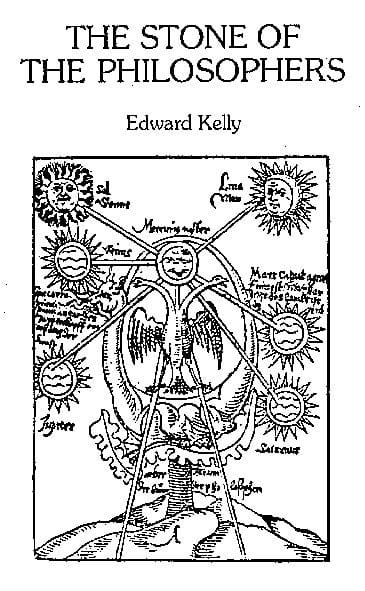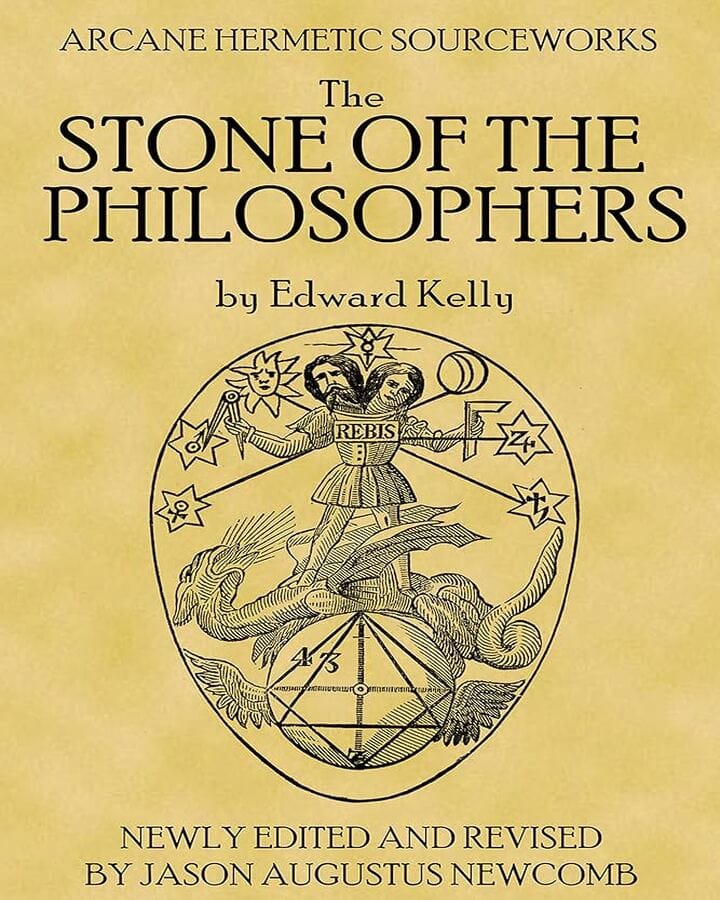
Image Credit- Hema
The Stone of the Philosophers by Edward Kelly is one of the most fascinating and enigmatic texts in the history of alchemy. Written during the late 16th century, it reflects the mysterious and symbolic language of alchemists who sought to uncover the greatest secret of nature — the Philosopher’s Stone. Edward Kelly, often remembered as the mystical associate of the famed alchemist and astrologer John Dee, claimed to have discovered the secret to transmuting base metals into gold and achieving spiritual enlightenment. His treatise, The Stone of the Philosophers, stands as an important contribution to the lore and philosophy of alchemy.
The Stone of the Philosophers by Edward Kelly – Unveiling the Mystery of Alchemical Transformation

Who Was Edward Kelly?
Edward Kelly was an English alchemist, scryer, and occultist born in 1555. He is best known for his collaboration with Dr. John Dee, with whom he conducted numerous mystical experiments and spiritual communications. Together, they sought divine knowledge and hidden truths, often recording their visions and revelations. Kelly, however, gained special fame for his alleged discovery of the Philosopher’s Stone and his ability to produce gold through alchemical means. His reputation spread across Europe, attracting the attention of noble patrons and fellow alchemists.
The Meaning Behind The Stone of the Philosophers by Edward Kelly
In The Stone of the Philosophers by Edward Kelly, the author presents alchemy not only as a physical science but also as a spiritual journey. The Philosopher’s Stone, often symbolized as the ultimate goal of alchemy, was believed to have the power to transform base metals like lead into pure gold. But beyond material transformation, it represented the purification and perfection of the human soul. Kelly’s writings reveal a deep connection between physical alchemy and spiritual rebirth — a belief that true mastery of alchemy required inner transformation as much as technical skill.
The text uses symbolic language common to alchemical literature. It speaks of the “Prima Materia” or the original substance of the universe, the importance of balance between the elements, and the process of refining the soul through stages of purification. Through allegory and metaphor, Kelly expresses how the alchemist’s quest mirrors the soul’s journey toward divine wisdom.
Historical Significance and Influence
The Stone of the Philosophers by Edward Kelly holds a unique place in the evolution of Western esoteric thought. During the Renaissance, alchemy was not merely about laboratory experiments but was intertwined with philosophy, mysticism, and religion. Kelly’s work reflects this blend of science and spirituality, showing how alchemists sought to understand creation itself.
His ideas influenced later generations of alchemists and occult thinkers who continued to explore the relationship between material transformation and spiritual enlightenment. Even though modern science eventually replaced alchemy with chemistry, the symbolic and philosophical aspects of Kelly’s work continue to fascinate historians, spiritual seekers, and esoteric scholars.
Controversy and Mystery Surrounding Kelly’s Claims
Edward Kelly’s life was filled with mystery, intrigue, and controversy. While he claimed to possess the secret of creating gold and the Philosopher’s Stone, skeptics accused him of deception. Some believed he used mystical language to disguise fraudulent practices, while others viewed him as a genuine seeker of divine truth. Regardless of the debate, Kelly’s writings and the legend of his discoveries cemented his place in alchemical history.
Even today, The Stone of the Philosophers by Edward Kelly remains a subject of fascination. Some researchers attempt to interpret its cryptic symbols as metaphors for spiritual evolution, while others view it as an early attempt to describe chemical processes. Either way, it represents a bridge between science, spirituality, and the human desire for ultimate transformation.
The Stone of the Philosophers by Edward Kelly is more than an alchemical text — it is a reflection of humanity’s eternal quest for knowledge, transformation, and enlightenment. Through his words, Kelly invites readers to look beyond the literal search for gold and to recognize the deeper meaning of spiritual perfection. His legacy endures as a reminder that the true Philosopher’s Stone lies not in material wealth, but in the pursuit of inner wisdom and harmony.
Let us know in the comments what you think about Edward Kelly’s mysterious quest — do you see it as ancient science, spiritual allegory, or both?

Leave a Reply
You must be logged in to post a comment.